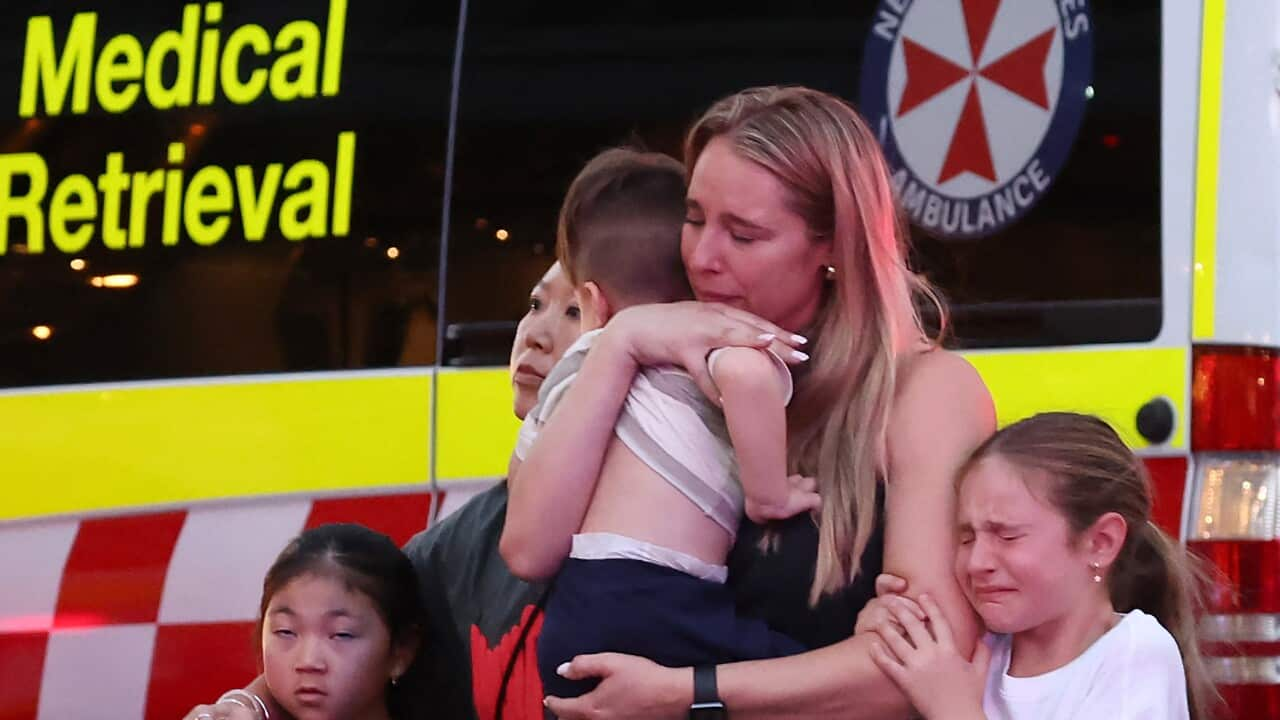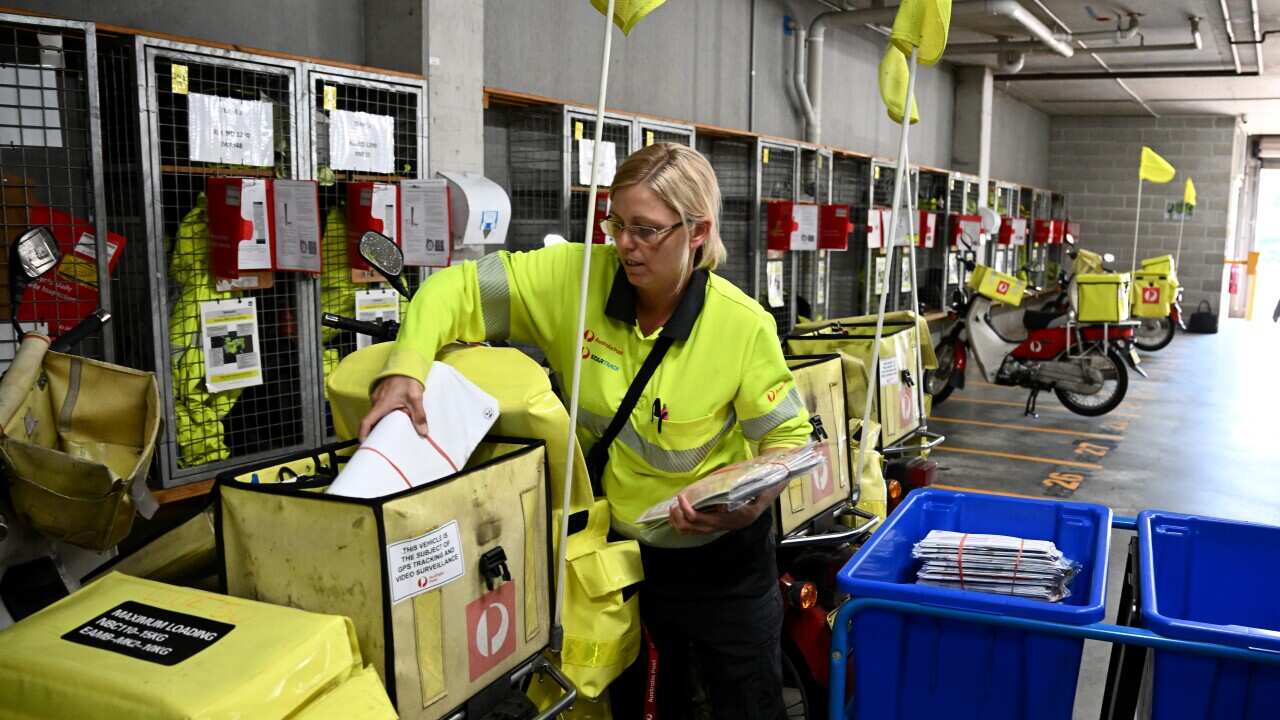Your vision is obscured by bright lights, you can't talk and you’re unable to move from the spot where you're lying. You’re at the dentist.
While most people can find a visit to the dentist unpleasant, for many survivors of sexual assault the circumstances around a dentist's chair can be extremely triggering and traumatic.
For this reason, many survivors forgo proper dental care, leading to a range of other health and self-esteem issues.
But Melbourne dentist Dr Sharonne Zaks believes there is a better way to provide dental treatment to trauma survivors — and that it should be the standard.

Dr Sharonne Zaks says dentists have a unique opportunity to help patients work through trauma. Source: Supplied
“A lot of the triggers and memories relate to the physical and emotional imbalance that dental treatment creates,” Dr Zaks, who is preparing to speak at in May, told SBS News.
“For example, the horizontal chair position, they’re sort of back in the same physical position as the trauma, lying under an authority figure, and that’s a really strong trigger for memory.
“And the fear of not being able to breathe, or gagging, or vomiting during treatment, and the fear of having an embarrassing panic attack or being drugged, if they were drugged before the assault.”
When explained like this, the connections between the two very different experiences are clear and, yet, dental students are not trained in how to treat trauma survivors.

Dr Sharonne Zaks owns a dental practice in Melbourne. Source: Supplied
While a confronting issue for dentists to face, Dr Zaks said it's often small changes that make the biggest difference.
These include allowing the patient to visit the clinic beforehand to meet the staff and become familiar with the environment, making sure to explain all elements of the procedure as she goes and asking for consent at every step, introducing herself as Sharonne not Dr Zaks, talking to the patient from a similar height, encouraging them to bring a support person, playing music and starting the session by allowing the patient to talk openly about any concerns they have.
“What the research is showing is that anxiety and phobia largely reside in the relationship with the dentist not so much in the individual patient as was previously thought,” Dr Zaks said.
“So it's all about reconfiguring the power balance of the relationship and us as dentists thinking about how to be less dominant and giving power and control back in all ways.”
She said it’s important to ensure the patient is comfortable enough to discuss any things they think might make the process easier — no matter how unusual they might seem.
“I even have a patient who brings in a masseuse and she massages her feet,” she said.
“I have a patient who sings opera to help her relax … I really make it clear that no request is too crazy.”
One of Dr Zaks patients, a survivor of childhood abuse, told SBS News that she has recently moved more than four hours away to a country town in NSW, but still makes the journey to see Dr Zaks in Melbourne multiple times a year.

For Jane*, being left voiceless and powerless at the dentist would lead her to disassociate due to lingering effects of childhood abuse. Source: Press Association
Jane*, 53, said before meeting Dr Zaks she would disassociate in situations where she felt “powerless or voiceless” due to her childhood trauma. She hadn’t been to the dentist for 15 years.
“I just felt really cared for and I very quickly understood that she really genuinely wanted the best for me and really cared about my teeth, way more than I did,” she said, speaking about Dr Zaks.
“At the time my self-care was not very good at all, but it really helped me believe that I was worth taking care of.”
Another one of Dr Zak’s patients, and a survivor of multiple sexual assaults, went from being unable to put a toothbrush in her mouth — and breaking down in tears the moment she sat in the dental chair — to being able to get her wisdom teeth removed four years after her first appointment.
Jane is now on top of her dental health and has been seeing Dr Zaks regularly for eight years, but said the high financial costs of travelling hours to see a private dentist is becoming unsustainable. To counter the costs, she’s tried combining her visits to Dr Zaks with public dental care but so far it's been too triggering for her.
“There's a need for training for dentists generally and especially in the public system, but all across the board really,” Jane said.
“The quality of care in that sector needs to be improved drastically.”
Dr Zaks agreed that the system isn’t set up for dealing with trauma.
For her, the biggest challenge has been that “dentists run on time” and she is not reimbursed for any work outside the allocated treatment period. For someone who makes sure to call all patients personally after an appointment, this is a difficult predicament.
READ MORE

How do you recover from trauma?
“The time and money elements are tricky and effectively the system needs to be changed, but we can all make a huge difference with very simple things,” she said.
In an attempt to revolutionise the industry, and will present her findings at the .
“The confronting thing is roughly one in three women and one in six men have been sexually assaulted by the age of 18 globally. So we're already seeing these patients without any awareness of the history,” she said, adding that this works out to be at least one survivor per day.
“I believe that this sort of approach [trauma-led care] should be integrated into the teaching of not just dentists, but other health professionals and teachers and police and hospitals and across all human services.”
*Names have been changed.
If you or someone you know is impacted by rape or sexual assault, call 1800RESPECT on 1800 737 732 or visit . In an emergency, call 000.
If you or someone you know is impacted by rape or sexual assault, call 1800RESPECT on 1800 737 732 or visit . In an emergency, call 000.










